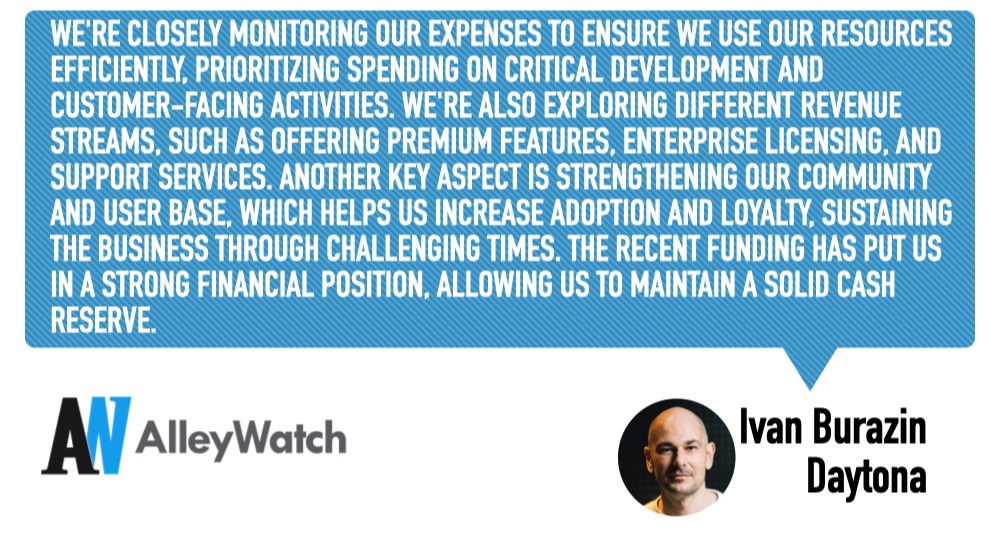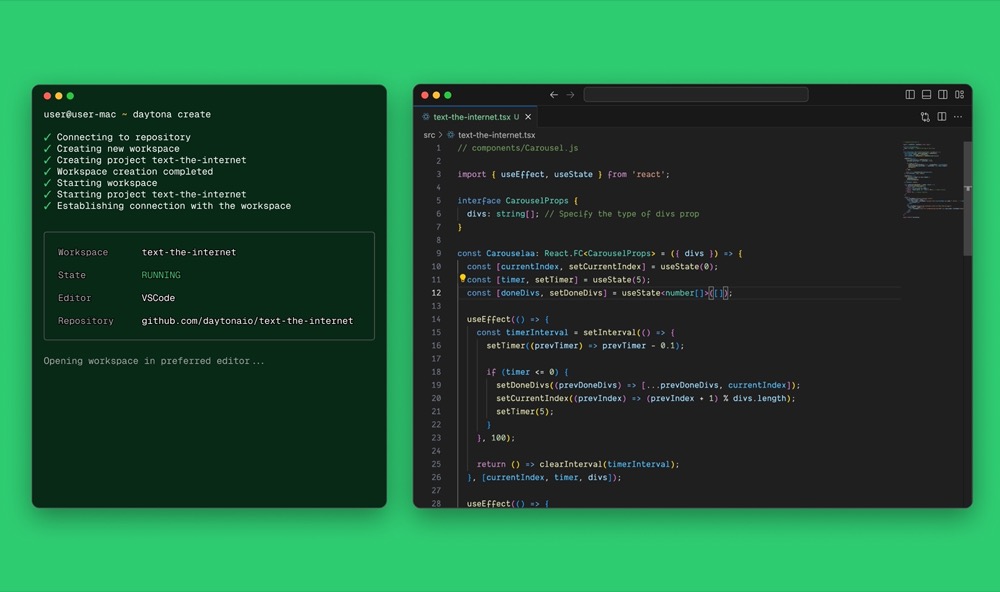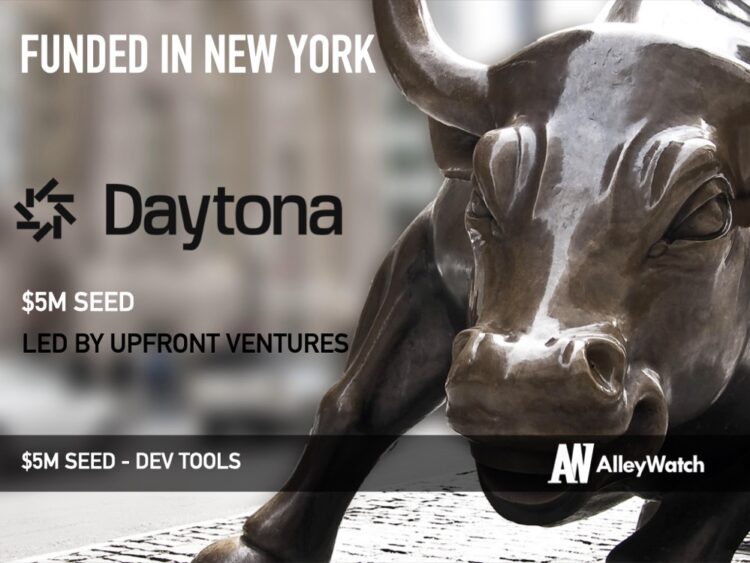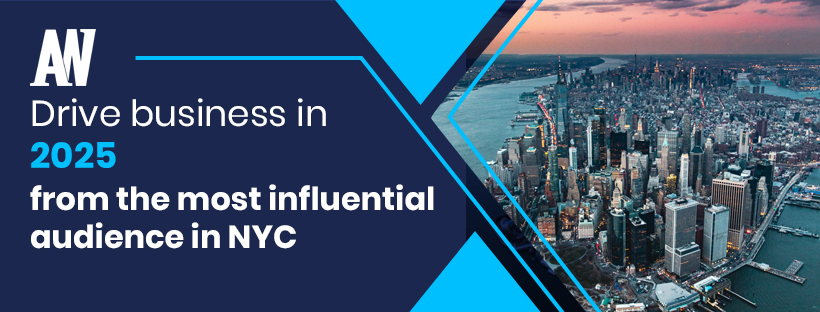From a productivity perspective, managing development environments can be challenging for software teams. It’s estimated that developers lose 56% of their productivity time due to inefficient development environments. Containerization, which bundles application elements into a single image, has alleviated some of these difficulties. Daytona builds on this with its open-source platform for self-hosted, secure, and standardized development environments. The platform streamlines the creation and maintenance of secure environments, automates new project branches, and enables real-time collaboration among team members. Daytona supports any Git provider (e.g., GitHub, Bitbucket) and integrates directly with IDEs, providing flexibility for developers to use their preferred tools and configurations. Initially focused on serving enterprises, Daytona has now opened up its offering to also support individual developers.
AlleyWatch caught up with Daytona CEO and Cofounder Ivan Burazin to learn more about the business, the company’s strategic plans, latest round of funding, which brings the company’s total funding raised to $7M, and much, much more…
Who were your investors and how much did you raise?
Our $5M seed round was led by Upfront Ventures, with participation from 500 Global, an existing investor.
Tell us about the product or service that Daytona offers.
Daytona offers a self-hosted and secure open-source development environment manager. It allows developers to automate tasks, collaborate effortlessly, and enhance productivity while maintaining high security standards. The unique value proposition is that Daytona can be self-hosted on a user’s own infrastructure, providing high-density workspaces that ensure efficient resource utilization and a superior developer experience.
What inspired the start of Daytona?
 Daytona was inspired by the needs of large enterprises that required a solution to enable developers to automate tasks and collaborate effectively, all while maintaining high security standards. The team saw a gap in the market for such a tool and decided to develop Daytona to address these needs.
Daytona was inspired by the needs of large enterprises that required a solution to enable developers to automate tasks and collaborate effectively, all while maintaining high security standards. The team saw a gap in the market for such a tool and decided to develop Daytona to address these needs.
How is Daytona different?
Daytona stands out because it democratizes development environments by making its core components open source, allowing developers worldwide to tackle the ‘’works on my machine’’ problem. It provides a SaaS-like experience that can be self-hosted, giving developers flexibility and control over their development environments without additional hosting costs.
What market does Daytona target and how big is it?
Daytona targets both large enterprises and individual developers. Initially designed for enterprises, the solution was later expanded to meet the needs of the broader developer community, which includes approximately 26 million developers worldwide. This market suffers from productivity losses due to inefficient development environments, which Daytona aims to resolve.
What’s your business model?
Our business model is multi-faceted, designed to serve a broad spectrum of users from individual developers to large enterprises. At the core, Daytona operates as an open-source platform, which means the base product is freely available for anyone to use and contribute to. This open-source approach not only democratizes access to advanced development tools but also fosters a strong community of users and contributors, driving innovation and adoption.
For enterprises, we offer premium features and services that enhance the base product’s capabilities. This includes additional security features, advanced resource management tools, and dedicated support services tailored to meet the specific needs of larger organizations. These premium offerings are available through a subscription model, providing consistent revenue while delivering added value to our clients.
How are you preparing for a potential economic slowdown?
We’re closely monitoring our expenses to ensure we use our resources efficiently, prioritizing spending on critical development and customer-facing activities. We’re also exploring different revenue streams, such as offering premium features, enterprise licensing, and support services. Another key aspect is strengthening our community and user base, which helps us increase adoption and loyalty, sustaining the business through challenging times. The recent funding has put us in a strong financial position, allowing us to maintain a solid cash reserve.

What was the funding process like?
The funding process was rigorous but ultimately rewarding. We focused on building a compelling narrative around our product’s value and potential. Engaging with investors who share our vision was crucial. This involved multiple rounds of meetings, presentations, and due diligence. The support from existing investors and the momentum from our open-source launch played a significant role in attracting new interest and closing the seed round successfully.
What are the biggest challenges that you faced while raising capital?
One of the biggest challenges was clearly articulating how Daytona stands out in a competitive market. We had to convincingly demonstrate not just what makes our product unique, but also its scalability and long-term value. Convincing investors of the large, addressable market beyond our initial enterprise focus was another hurdle. We needed to present substantial evidence and compelling arguments about how our open-source approach could unlock massive growth potential.
What factors about your business led your investors to write the check?
Founder market fit first and foremost, the team has been building in developer productivity for over 10 years, you’d be hard-pressed to find a team as deeply knowledgeable, embedded, opinionated and passionate about improving developer productivity.
What are the milestones you plan to achieve in the next six months?
We are committed to refining and expanding the features of Daytona, especially those that enhance developer productivity and simplify setup. Growing our open-source community is also a priority, encouraging more contributions and increasing adoption. Of course, onboarding more enterprise clients and starting to generate significant annual recurring revenue from these partnerships is another major focus.

What advice can you offer companies in New York that do not have a fresh injection of capital in the bank?
My advice would be to focus on your core strengths. Identify and double down on what makes your product or service unique. Ensuring that your core offering remains strong and appealing to customers is vital. Review your financials carefully and identify areas where costs can be reduced without compromising critical operations. Efficiency can be your best friend during lean times. Engage deeply with your existing customer base; their feedback and loyalty can be instrumental in navigating tough periods and may open up new revenue opportunities
Where do you see the company going now over the near term?
In the near term, Daytona plans to capitalize on its recent funding and growing community support to further develop its product and expand its user base. They are focused on solving the ‘’works on my machine’’ problem for all developers and enhancing the overall developer experience.
What’s your favorite summer destination in and around the city?
As much as I enjoy exploring the natural beauty and vibrant life around New York, what I truly love is being constantly on the road. It’s one of the best parts of my job. Just this summer, I’m embarking on what we’re calling the Daytona Tour, traveling across Africa, India, and Europe. We’re hosting developer meetups in major cities to connect with our community, gather feedback, and showcase how Daytona can transform their development workflows. This tour is an incredible opportunity to meet talented developers from diverse backgrounds and to see firsthand how our platform is being used around the world. It’s exhilarating to be part of such a dynamic and global community, and I can’t wait to see where this journey takes us next.





